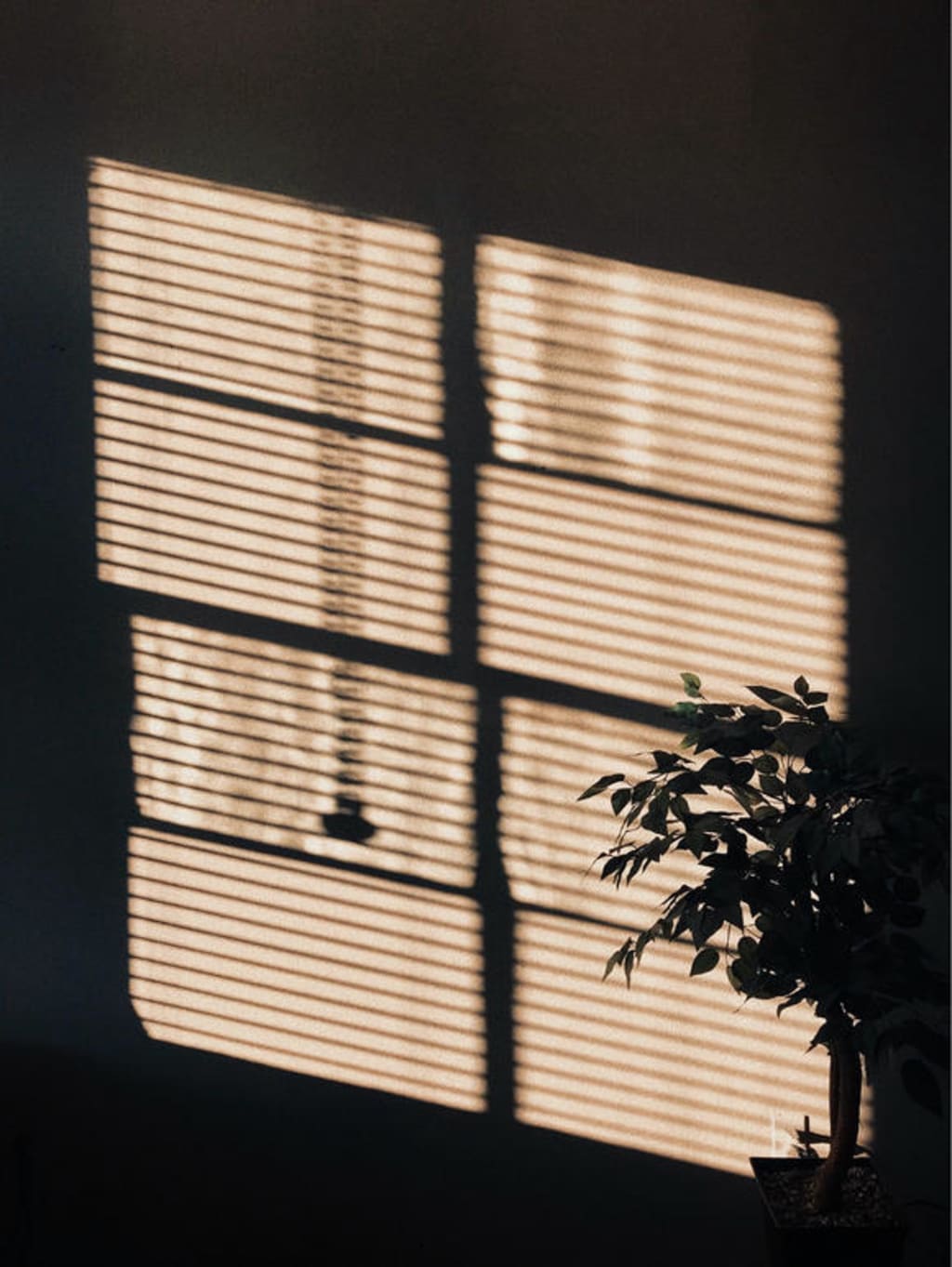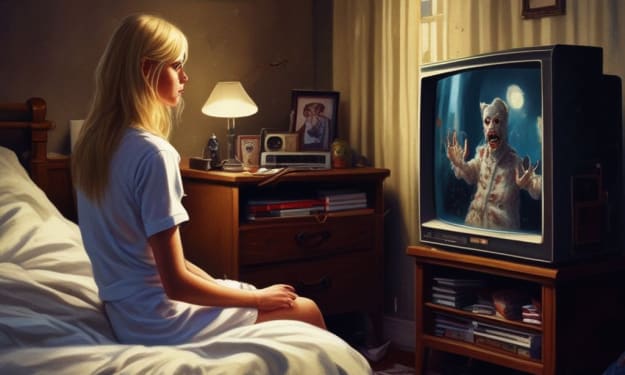Those With OCD May Be Aware of Their Own Symptoms but are Helpless to Stop Them
People don’t see the mind-numbing rituals that have to be performed; your life isn’t your life anymore — you’re trapped in your obsessions.

Disclaimer: Although I have personal and professional experience in the mental health field, I am not a licensed mental health professional. The information contained in this article is meant for educational and entertainment purposes only. The contents of this article are not meant to diagnose, treat or cure any disorder.
.
.
OCD is a disorder that is commonly misunderstood. OCD stands for Obsessive-Compulsive Disorder. Many have attributed specific symptoms of OCD as either comical behaviors or obsessive cleaning behaviors to covet over.
The fantasy about OCD stops today.
OCD is far more than the illusion of being a cleaning and organizational goddess. Instead, OCD is an all-consuming disorder that can take over someone’s life.
Behind every OCD quirk is a real disorder that affects a person more severely than you would ever know. People don’t see the mind-numbing rituals that have to be performed; your life isn’t your life anymore — you’re trapped in your obsessions.
The International OCD Foundation estimates that nearly 1 in 100 adults lives with OCD. With rising exposure to accurate OCD information, there can hopefully be a better understanding of what OCD genuinely is.
I have lived with OCD for much of my life, but it wasn’t until recently that I was diagnosed with the disorder. I want to help spread awareness about the reality of OCD. Check out my story with OCD here.
So OCD can severely affect someone, that much we know, but how exactly does it affect someone?
Let’s start by exploring what OCD is.
What is OCD?
OCD at its core is an obsessive disorder, so there will be a plethora of situations or phobias the person is actively trying to avoid. Those living with OCD are faced with relentless anxiety due to their fears and obsessions.
From the anxiety that someone can experience around their obsession, there becomes an urgency and anxiety around avoiding that obsession — whatever that may be.
With every diagnosable mental disorder, there are going to be varying levels of possible symptoms. What one person experiences, another may not.
With that being said, the most common OCD symptoms are not confined to a single behavior or action but rather a consistent flow of distressing behavior.
According to the Cleveland Clinic, those with OCD may be aware of their symptoms and behaviors but are helpless to stop them. This is important to keep in mind when understanding OCD.
Obsessions
Obsessions are persistent, unwanted thoughts and images that can cause anxiety or disgust that are not remedied with logic or reasoning.
Obsessions are what someone with OCD will focus on that causes anxiety, fear, tension, panic, and stress.
Typically obsessions can arise from safety concerns, like health or the wellbeing of family members.
Over the years, OCD has gone from being classified as an anxiety disorder to an obsessive-compulsive and related disorder. The more we learn about mental health disorders, the more we can tell the difference between disorders.
Currently, the Mayo Clinic states the following about OCD symptoms:
“OCD obsessions are repeated, persistent and unwanted thoughts, urges, or images that are intrusive and cause distress or anxiety. You might try to ignore them or get rid of them by performing a compulsive behavior or ritual. These obsessions typically intrude when you’re trying to think of or do other things. (Mayo Clinic, N.D)”
Those with OCD have no control over their obsessions; they are stuck with these intrusive thoughts and behaviors.
It’s difficult when we have little control at times over what we obsess about it. It’s time-consuming and draining but something we have no control over.
Those with OCD will actively try to prevent their obsession from occurring. Avoidance of phobias or fears can cause people to go to extreme lengths to relieve their anxiety. Someone living with OCD can develop compulsions to alleviate their anxiety.
Compulsions
With obsessions being the driving force of anxiety in OCD, compulsions come to relieve that anxiety. The distress caused by the obsessions will lead someone with OCD to seek relief — no matter what.
The relief from anxiety and stress around obsessions comes in the form of compulsions. Compulsions can vary significantly from person to person and be expressed uniquely also.
Compulsions are behaviors that a person will feel a strong and distressing urge to complete in response to their obsessions.
Compulsions can be commonly seen through repetitive checking, counting, cleaning, and other related behaviors.
For example, someone obsessed with germs and contamination may seek out extreme cleaning measures to manage anxiety.
With obsessions triggering anxiety, compulsions are used as a way to relieve anxiety. But obsessions are persistent and relentless. Compulsion does not stop the obsession, but it can ease anxiety momentarily.
Once the compulsion has relieved the anxiety, the fears and obsessions are never-ending.
Together, obsessions and their subsequent compulsions make up OCD. From obsessions and compulsions, there is a deeper dive into what their obsessions may be.
Different Forms of OCD
With any disorder, there can likely be different subtypes or forms of that disorder. Mental health care has become more specific in regards to meeting everyone’s unique needs.
Although the different types of OCD are not officially categorized, research has outlined some possible subtypes to OCD:
Cleaning and Contamination
A person will need their surroundings clean and germ-free. People with this form of OCD may experience stress and anxiety around germs, getting sick, and much more. Someone who has this form of OCD may also be more inclined to participate in cleaning rituals to ease their obsession with germs.
Symmetry and Ordering
Along with cleaning and contamination, symmetry and order are other well-known forms of OCD. Someone who has this type of OCD will want things orderly and tidy, with nothing out of place. Anxiety can occur when they are not able to maintain their order and symmetry.
Forbidden Thoughts
This is one of the lesser-known forms that I have seen. Unfortunately, this is the subtype that I live with. This one can include unwanted visuals or thoughts about highly graphic or explicit content.
With this subtype, there can be a lot of mental rituals that people will do to cleanse the wrong, intrusive thought away.
I find myself struggling with this type of OCD. I often have to try and keep myself as distracted and busy as possible — with anything, even scrolling through TikTok for hours so that I don’t allow my mind to be filled with those horrid images.
Hoarding
Much like the first two subtypes, this one is pretty well known. If you are a fan of Hoarders, you may already know what this means. Hoarding is when someone holds onto items that have little to no value because throwing those items away will be too upsetting.
Although the subtypes of OCD are not used clinically, there is research supporting these forms of OCD. The different forms of OCD can help people understand the variety of symptoms that OCD can bring.
OCD will never be the same for two people.
Do keep in mind that someone does not need to fit entirely into one form. There is such a wide variety of symptoms that have one form of OCD — be sure to remember that this is not a clinical diagnosis, meaning that these forms of OCD are research-based but not used by clinicians.
Hopefully, you’ll take the knowledge in this article to spread awareness and understanding of OCD.
.
.






Comments
That Psych Nerd is not accepting comments at the moment
Want to show your support? Send them a one-off tip.